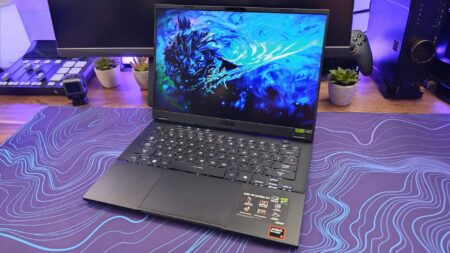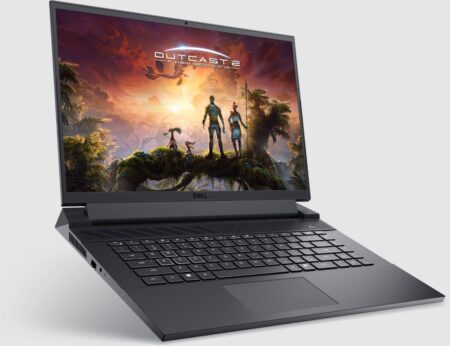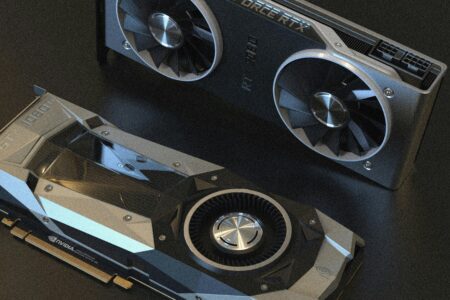Hey there, gamers and tech enthusiasts! If you’re eyeing a new laptop and have stumbled upon workstation models, you might be asking yourself, “Are workstation laptops good for gaming?” It’s a great question and one that deserves a clear answer. After all, workstations pack some serious hardware, but do they fit the gaming bill? Let’s dive in and explore.
Quick Comparison: Workstation Laptops vs Gaming Laptops
Here’s a quick look at how workstation laptops compare to gaming laptops:
| Feature | Workstation Laptops | Gaming Laptops |
|---|---|---|
| Performance | Optimized for heavy multitasking and CAD work | High performance tuned for gaming |
| Graphics | Professional-grade GPUs (e.g., NVIDIA Quadro) | Consumer-grade GPUs (e.g., NVIDIA GeForce) |
| Build Quality | Durable and robust for long hours of work | Stylish, often RGB-lit, gaming aesthetics |
| Display | High-resolution, color-accurate displays | High refresh rates (120Hz, 144Hz, or higher) |
| Price | Typically more expensive | Wide range, from budget to premium |
Now that you’ve got a snapshot of their differences, let’s talk about why workstations might (or might not) work for gaming.
What Makes Workstation Laptops Stand Out?
Workstation laptops are built for professional users. Think engineers, 3D designers, architects, and video editors. These beasts are optimized for running demanding software like AutoCAD, SolidWorks, or Adobe Premiere Pro. Here’s what makes them unique:
- Professional-Grade GPUs
Workstations often come with GPUs like NVIDIA Quadro or AMD Radeon Pro. These are tailored for precision tasks and stability in professional workloads. While they excel at rendering and simulations, they aren’t always optimized for gaming. That’s not to say they can’t game—they’re just not built specifically for it. - Powerful Processors
These laptops often boast high-end CPUs like Intel Xeon or Intel Core i9. They’re designed to handle multitasking, heavy computational tasks, and rendering. These processors also shine in gaming, but they might be overkill for most games. - Exceptional Build Quality
Workstations are built like tanks. They’re durable and designed to endure long work sessions, making them highly reliable. However, they lack the flashy RGB lighting and edgy designs that many gamers love. - Top-Notch Displays
Color accuracy and high resolutions (4K, for example) are common in workstation laptops. This makes them perfect for content creators, but gamers might miss high refresh rates for smoother gameplay.
Can Workstations Handle Gaming?
Short answer: Yes, but with caveats. Here’s what you need to know:
1. Graphics Performance
Gaming relies heavily on GPUs. Workstation GPUs like NVIDIA Quadro prioritize accuracy over speed. Consumer-grade GPUs like the NVIDIA GeForce RTX series, found in gaming laptops, are optimized for high frame rates and real-time rendering in games. If you’re a casual gamer, a workstation’s GPU might suffice. But for competitive gaming or graphically intense titles? A gaming laptop wins.
2. Thermal Management
Workstations are designed to stay cool under prolonged use, but the cooling systems are often optimized for steady workloads rather than the bursts of heat typical in gaming. This could lead to thermal throttling during long gaming sessions.
3. Display Limitations
Workstations’ screens often lack the high refresh rates gamers crave. While a 4K display with 60Hz looks stunning, it doesn’t deliver the fluid motion of a 144Hz or 240Hz display found in gaming laptops.
4. Price Factor
Workstations are generally more expensive because of their precision-focused hardware. For the same price, you could get a high-end gaming laptop with better gaming performance.
Scenarios Where Workstation Laptops Work for Gaming
Workstation laptops aren’t entirely out of the gaming arena. Here are situations where they’re a good fit:
- You’re a Professional Gamer-Creator
If you need a laptop for work (designing, video editing, 3D rendering) and want to enjoy games casually, a workstation might be a two-in-one solution. - You Prioritize Build Quality
If durability and reliability are high on your list, a workstation might outlast many gaming laptops. - Casual Gaming
For lighter games or older titles, workstation laptops can perform admirably.
When to Stick with a Gaming Laptop
If gaming is your primary goal, here’s why you’ll want to stick to gaming laptops:
- Graphics and Frame Rates Matter
Gaming laptops are designed to maximize FPS and visual fidelity. This means you’ll enjoy smoother and more immersive gameplay. - Portability and Aesthetics
Gaming laptops often strike a balance between power and portability. Plus, they look the part with RGB lights and aggressive designs. - Better Value for Gamers
You’ll get more gaming performance for your money with a dedicated gaming laptop compared to a workstation.
The Verdict
So, are workstation laptops good for gaming? It depends on what you’re looking for:
- If you’re a gamer who occasionally dabbles in professional workloads, a gaming laptop is the better choice.
- If you’re a professional who games casually, a workstation can handle the job—just don’t expect it to outshine dedicated gaming machines.
Ultimately, it comes down to your priorities. Workstations are powerful, reliable, and versatile, but when it comes to pure gaming, they take the backseat to gaming laptops designed specifically for the job.
What do you think? Have you tried gaming on a workstation laptop? Let’s chat in the comments below!
Read more :How Many SSD Slots in HP Gaming Laptop 16-k0000 Series?










